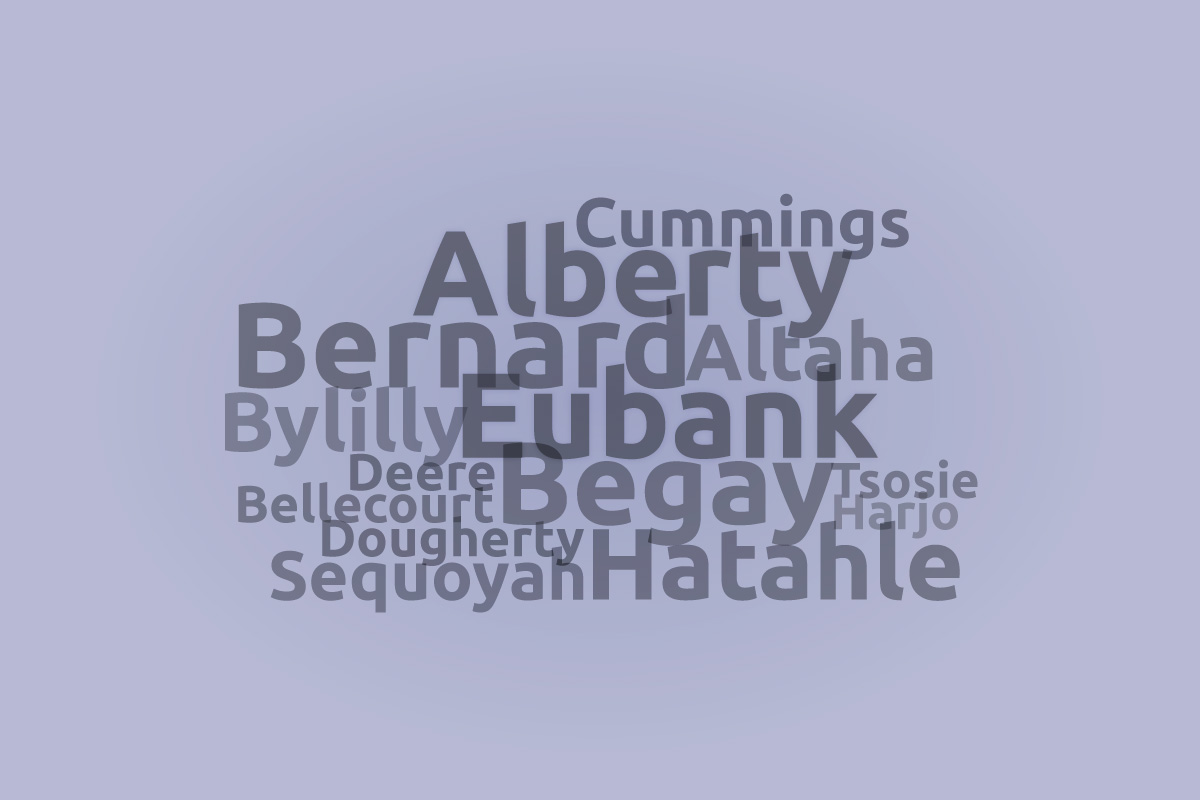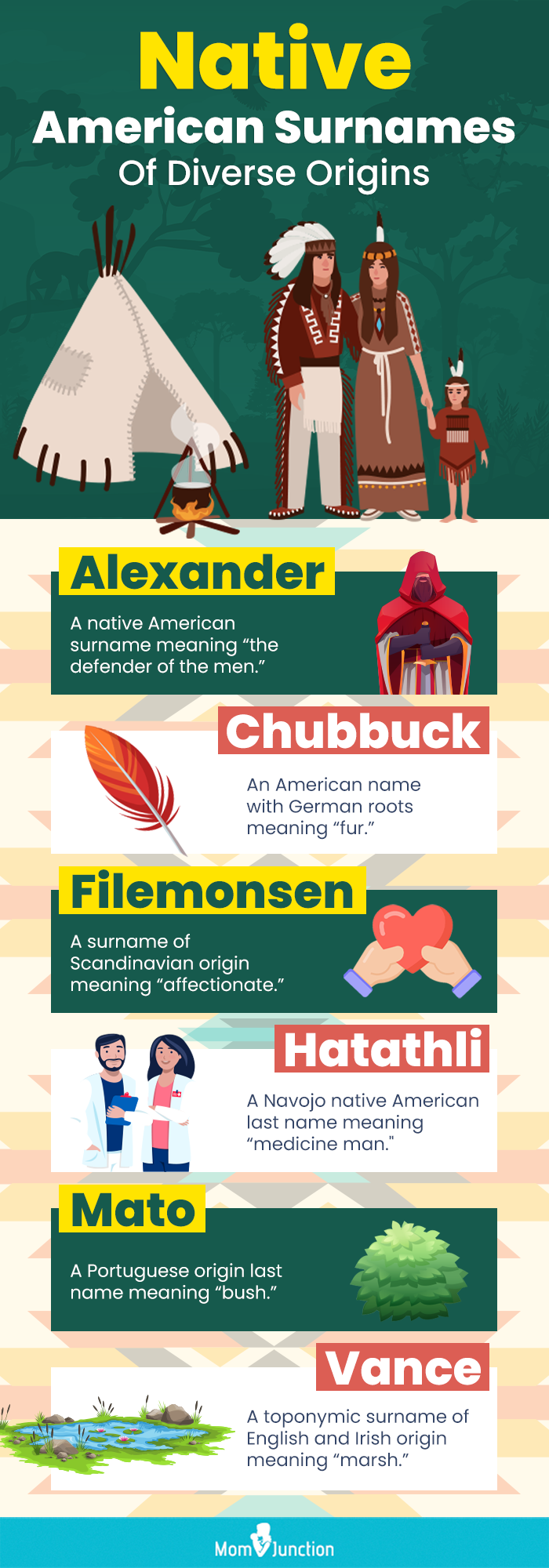You’ve probably heard the term "Native American surname" tossed around in history books, genealogy websites, or even in casual conversations. But what exactly does it mean? Native American surnames are more than just names—they’re a window into centuries of tradition, culture, and resilience. These names carry the weight of history, symbolizing the deep connection between Indigenous peoples and their ancestral roots. So, if you’ve ever wondered about the origins, meanings, or significance of these unique surnames, you’re in the right place.
Think about it—names are like little time capsules. They tell stories, preserve memories, and pass down wisdom from one generation to the next. For Native Americans, surnames aren’t just labels; they’re a reflection of their identity, heritage, and the tribes they belong to. Whether you’re diving into your own family tree or simply curious about the rich cultural tapestry of Indigenous peoples, this article is here to guide you through the fascinating world of Native American surnames.
Let’s not sugarcoat it—this topic is complex, layered, and full of nuances. But don’t worry, we’ll break it down for you in a way that’s easy to digest while still being packed with valuable insights. From historical context to modern-day relevance, we’ve got all the angles covered. So, grab your favorite drink, settle in, and let’s embark on this journey together!
Read also:Top Tattoo Back Designs Female A Guide To Finding Your Perfect Ink
Understanding the Origins of Native American Surnames
When we talk about Native American surnames, it’s crucial to understand their origins. Unlike European naming conventions, Indigenous names often evolved organically over time, influenced by tribal customs, geography, and interactions with other cultures. Before European colonization, most Native American tribes didn’t use formal surnames in the way we recognize them today. Instead, individuals were identified by personal names, clan affiliations, or titles that reflected their roles within the community.
However, the introduction of Western naming practices during colonization changed everything. Many Native Americans adopted surnames as a result of government policies, missionary influences, or through marriage to non-Native individuals. Some surnames were derived from English translations of tribal names, while others were simply assigned by outsiders. It’s a complex and often painful history, but one that’s essential to understanding the context of these names today.
How Native American Surnames Were Formed
Now, let’s dive deeper into how these surnames came to be. There are several ways Native American surnames were formed, and each method tells its own story. Here are a few common patterns:
- Derived from Tribal Names: Some surnames are direct translations or adaptations of tribal names. For example, "Apache" or "Cherokee" might become part of a surname.
- Inspired by Nature: Many Indigenous names are deeply connected to the natural world. Surnames like "Bearclaw" or "Eaglefeather" reflect this spiritual connection.
- Based on Personal Traits: Traits like bravery, wisdom, or physical characteristics could inspire a surname. Think "Swift Runner" or "Iron Bear."
- Influenced by European Naming: As interactions with Europeans increased, many Native Americans adopted surnames like "Smith," "Johnson," or "Washington," sometimes altering them slightly to fit their phonetic preferences.
Each of these methods adds a layer of meaning to Native American surnames, making them a rich tapestry of cultural significance.
The Cultural Significance of Native American Surnames
Beyond their historical origins, Native American surnames hold immense cultural significance. These names are often tied to specific tribes, clans, or families, serving as markers of identity and belonging. In many Indigenous cultures, names are sacred and carry spiritual power. They’re not just words; they’re vessels of meaning, carrying the stories and values of the people who bear them.
For instance, in some tribes, a surname might indicate a person’s clan affiliation. Clans are like extended families, and knowing someone’s clan can reveal a lot about their heritage and social role within the community. In other cases, surnames might reflect a person’s achievements, spiritual journey, or connection to a particular land or animal.
Read also:Felicia Combs Married The Inside Scoop On Love Life And Everything In Between
Examples of Iconic Native American Surnames
To better understand the cultural significance of these names, let’s look at some iconic examples:
- Black Elk: A revered spiritual leader and medicine man from the Oglala Lakota tribe, Black Elk’s surname reflects his deep connection to nature and spirituality.
- Sitting Bull: A legendary Hunkpapa Lakota chief and holy man, Sitting Bull’s surname symbolizes his strength, wisdom, and leadership.
- Crazy Horse: Known for his bravery and resistance against U.S. forces, Crazy Horse’s surname embodies his warrior spirit and commitment to protecting his people.
These names aren’t just famous—they’re powerful reminders of the resilience and courage of Native American leaders throughout history.
Challenges in Tracing Native American Surnames
While Native American surnames are rich in meaning, tracing them can be a daunting task. Historical records are often incomplete, biased, or lost due to colonization and forced assimilation policies. Many Native Americans were given new names by missionaries or government officials, erasing their original identities. This makes genealogical research particularly challenging for those seeking to reconnect with their roots.
Additionally, language barriers and transliterations can complicate the process. Native American languages are incredibly diverse, and many surnames have been anglicized or altered over time, making it difficult to trace their original forms. However, modern technology and increased access to tribal archives are helping to bridge these gaps, allowing more people to uncover their family histories.
Tools and Resources for Tracing Native American Surnames
Fortunately, there are several tools and resources available to assist in tracing Native American surnames:
- Tribal Archives: Many tribes maintain detailed records of their members, including genealogical information. Reaching out to tribal offices can be a great starting point.
- Online Databases: Websites like Ancestry.com and FamilySearch.org offer access to census records, land allotments, and other documents that may include Native American surnames.
- Cultural Centers: Visiting local cultural centers or museums can provide valuable insights into tribal naming conventions and traditions.
These resources can help you piece together the puzzle of your ancestry, even if the trail seems daunting at first.
Modern-Day Relevance of Native American Surnames
In today’s world, Native American surnames continue to play a vital role in preserving cultural identity. For many Indigenous people, these names serve as a link to their past, reminding them of their ancestors’ struggles and triumphs. They’re also a source of pride, celebrating the unique traditions and values of each tribe.
Moreover, Native American surnames have gained recognition in mainstream culture, thanks in part to the growing awareness of Indigenous issues. Celebrities, activists, and artists with Native American heritage often use their surnames to highlight their roots and advocate for greater representation and respect for Indigenous communities.
Native American Surnames in Popular Culture
From literature to film, Native American surnames have made their mark on popular culture. Here are a few notable examples:
- Leslie Marmon Silko: A celebrated Native American author, Silko’s surname reflects her Laguna Pueblo heritage and her commitment to storytelling.
- Taylor Swift: While not Native American herself, Swift has been inspired by Indigenous culture, incorporating elements like drumming and traditional dances into her performances.
- Cherokee Nation: The Cherokee Nation has been featured prominently in documentaries and films, shedding light on the tribe’s rich history and ongoing challenges.
These examples show how Native American surnames continue to influence and shape modern culture, bridging the gap between past and present.
Preserving Native American Surnames for Future Generations
Preserving Native American surnames is crucial for maintaining cultural continuity. As younger generations embrace their heritage, it’s important to pass down the stories and meanings behind these names. This can be done through education, storytelling, and community involvement.
Tribal schools and language programs are playing a key role in this effort, teaching children about their ancestors’ names and the significance they hold. Additionally, digital platforms and social media are providing new avenues for sharing these stories with a wider audience, ensuring that Native American surnames remain relevant and respected.
How You Can Support the Preservation of Native American Surnames
If you’re passionate about preserving Native American surnames, here are a few ways you can help:
- Learn More: Educate yourself about Indigenous cultures and the history behind their surnames.
- Support Tribal Initiatives: Donate to or volunteer with organizations working to preserve Native American languages and traditions.
- Spread Awareness: Share stories and information about Native American surnames on social media or in your community.
Every small action counts in the effort to preserve these invaluable cultural treasures.
Conclusion: Embracing the Legacy of Native American Surnames
In conclusion, Native American surnames are more than just names—they’re a testament to the resilience, wisdom, and beauty of Indigenous cultures. From their historical origins to their modern-day relevance, these names tell stories that deserve to be heard and celebrated. By understanding and respecting the significance of Native American surnames, we can honor the legacy of those who came before us and ensure that their voices continue to be heard for generations to come.
So, what’s next? We invite you to explore your own family history, learn more about Native American cultures, and share this knowledge with others. Together, we can build a brighter future that respects and values the rich heritage of Indigenous peoples. Don’t forget to leave a comment, share this article, or check out our other content for more insights into the fascinating world of genealogy and culture!
Daftar Isi
- Understanding the Origins of Native American Surnames
- How Native American Surnames Were Formed
- The Cultural Significance of Native American Surnames
- Examples of Iconic Native American Surnames
- Challenges in Tracing Native American Surnames
- Tools and Resources for Tracing Native American Surnames
- Modern-Day Relevance of Native American Surnames
- Native American Surnames in Popular Culture
- Preserving Native American Surnames for Future Generations
- How You Can Support the Preservation of Native American Surnames


